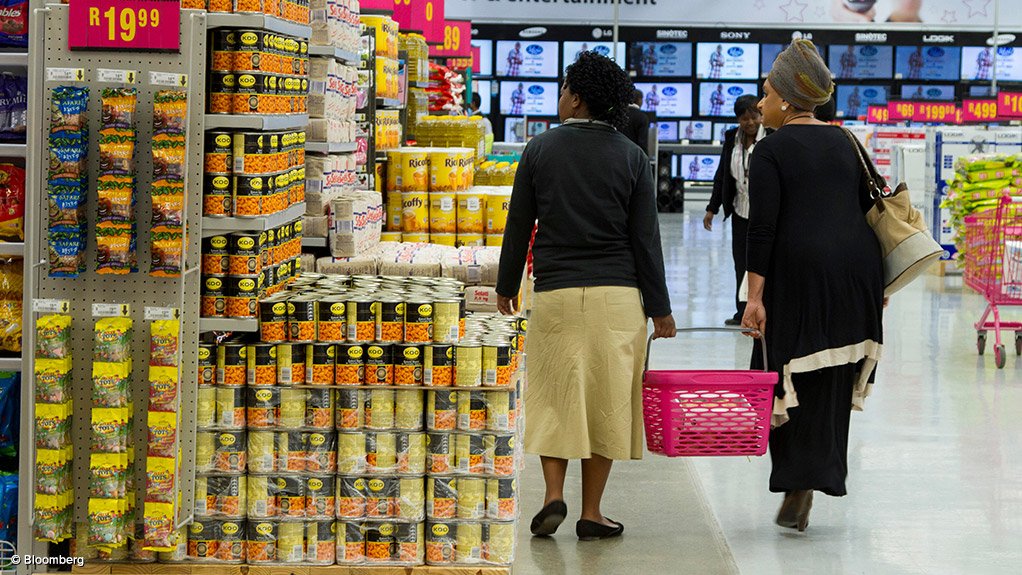Consumer confidence in South Africa plunged to its lowest in about 35 years during the second quarter of 2020, dragged down by the outbreak of Covid-19 and subsequent severe restrictions to almost all non-essential economic activity, a survey showed on Tuesday.
The First National Bank/Bureau of Economic Research Consumer confidence index tumbled from an already depressed level of -9 in the first three months of this year to -33 during the second quarter, just three index points shy of the all-time lowest level recorded in 1985.
This was a year in which South Africa was rocked by violent resistance against the racist apartheid system and a partial state of emergency. Then-president P.W. Botha made the infamous Rubicon speech which disappointed a domestic and global audience hoping he would announce major reforms including abolishing apartheid.
The second quarter consumer confidence survey was conducted by telephone between June 1 and 12, covering the first few days after President Cyril Ramaphosa's government relaxed Covid-19 lockdown rules to allow most retail outlets to reopen.
"The Covid-19 pandemic and ensuing economic restrictions had a materially negative impact on both consumers' ability and willingness to spend," First National Bank (FNB) chief economist Mamello Matikinca-Ngwenya said.
"Millions of workers were placed on unpaid leave or reduced pay, or even retrenched, as businesses scrambled to survive the lockdown - this severely constrained household income, and therefore consumers' ability to spend."
She said the highly uncertain outlook for the South African economy and intense pressure on household budgets convinced consumers to postpone their spending on big-ticket items such as passenger cars, household furniture and jewellery.
Not even cut-price specials offered by durable goods retailers or substantial interest rate cuts by the South African Reserve Bank seemed enough to rekindle such spending.
The survey showed that confidence was the weakest among low-income consumers earning less than R2 500 (US$146) per month, followed by middle-income households and then high-income earners with an income of more than R20 000 (US$1 169) per month. Even for the latter, confidence deteriorated by 16 index points.
The slump in the consumer index suggested that the considerable efforts by the government to support vulnerable households, for example through grants, had not fully compensated for the adverse coronavirus-related impacts on their household income, Matikinca-Ngwenya said.
She pointed out that, unlike affluent households, low-income families typically had little savings to fall back on during times of financial hardship.
"While affluent consumers are more likely to have access to credit or savings to soften the financial blow stemming from the Covid-19 related economic restrictions, many high-income households were indeed also adversely affected by reduced salaries, commissions and bonuses, retrenchments, lower rental and interest income," Matikinca-Ngwenya said.
She said consumers' extreme wariness to purchase durable goods, coupled with the substantial increase in financial aid to low income households, should cushion retail sales of basic necessities such as food, beverages, pharmaceuticals and toiletries in the near-term.
"Nevertheless, given the extent of the blow to consumer income and confidence, as well as the fact that coronavirus infections are now rising faster than ever before in South Africa, the retail sector is still a long way away from firing on all cylinders," she cautioned.
EMAIL THIS ARTICLE SAVE THIS ARTICLE
To subscribe email subscriptions@creamermedia.co.za or click here
To advertise email advertising@creamermedia.co.za or click here











